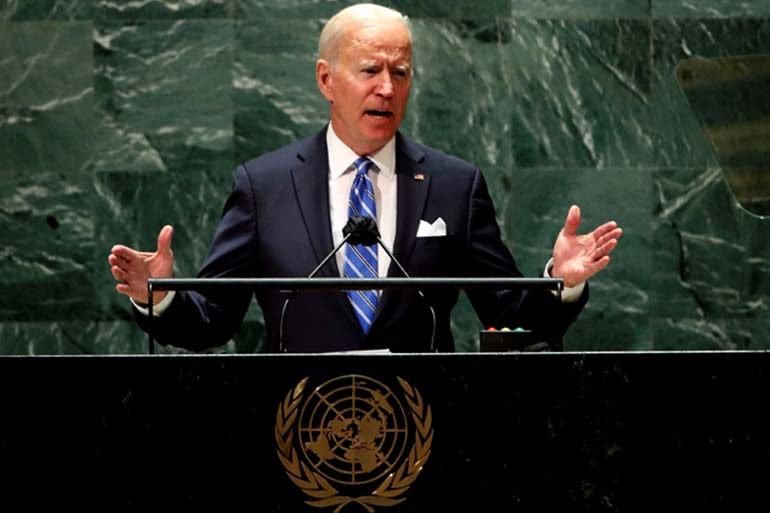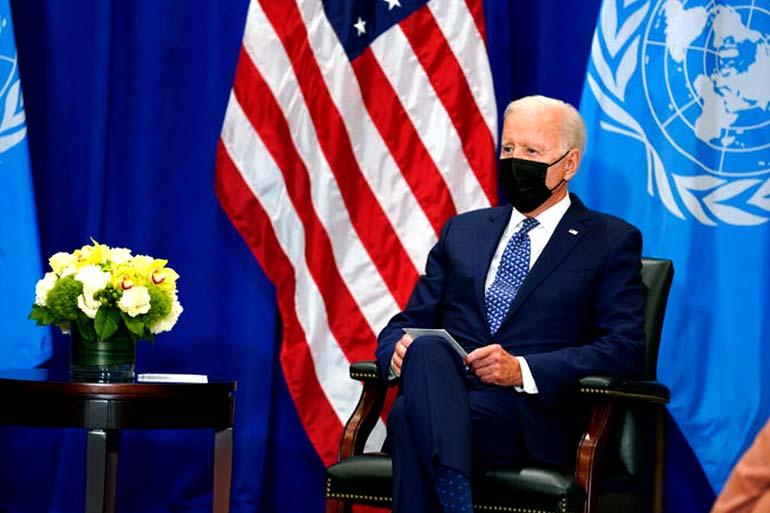Key Takeaways
- Biden said that America does not want Cold War (without pointing to China as a global threat) but he added that he was considering competing energetically against the autocracies worldwide.
- America is now rotating its attention to the Indo-Pacific region and planning to devote our resources and developmental aid to those challenges that are holding the keys to collective future, Biden said. The
- President further explained that these challenges include, fighting against this pandemic, resolving the climate change crisis, handling the swings in worldwide power dynamics, determining the guidelines for the world on vigorous matters including trade, cyberwar, and emerging new technologies, and facing the risk of extremism.
- Biden defend his decision to end the war in Afghanistan but didn’t speak about the submarine agreement with UK and Australia. He said that as we have closed this era of persistent war, now we are going to open a period of relentless diplomacy.
President Joe Biden said he envisioned leading the United States of America into a new direction of diplomacy as he sought to convince allies.
While speaking to the UN’s General Assembly he said that instead of military operations, US civic leadership can solve the world’s tenacious difficulties such as cyberwar, coronavirus, and climate change.
Biden makes the case of ‘relentless diplomacy’ instead of war to resolve global challenges
He further insisted (without single out China as the greatest global threat) the US would try to find to stand against increasing autocracies (while avoiding a new Cold War).
It was completely a different memorandum from his precursor (Trump), whose ways (isolationism and confrontation) triggered profound rifts with other countries.
As an alternative, Biden has conveyed a more conventional speech addressing the UN’s mission of multilateralism and asserting a new episode was opening after he planned to finish the war in Afghanistan.

Biden also said that the next decade would be decisive for our world and it will decide the international community’s future, and also added that the globe positions at a modulation point in history. He further explained, worldwide reaction to demanding challenges (like the climate crisis and the Covid-19 pandemic) will echo for the next generations yet to come.
But these challenges must be attempted with technological inventions and international collaboration, instead of war.
We’ve finished war (after 20 years of conflict) in Afghanistan, and as we ended this era of persistent war, “we’re now opening a new era of relentless diplomacy”. By harnessing the power of our development aid in new ways of lifting people worldwide,” added Biden.
Biden’s speech to the UN was based on the themes Biden presented since he entered the White House (in January), from framing the future of international relations to democracy versus autocracy and accentuating America’s strategies to fortify relations with its associates.
This is the vow at which many European states are pointing fingers, on account of a diplomatic tumult with France over a recent partnership with the United Kingdom (UK), and Australia that charge America’s oldest ally billions in a contract for nuclear submarines.
International officials and critics have also probed the autonomous decision taken by the Biden administration to end the war in Afghanistan after two decades of war with a chaotic withdrawal that created waves of refugees in America and Europe.
Biden said that we have had the Paris climate agreement. We’ve had global cooperation against the COVID-19. So we hope and we think, that we can have an efficient multilateral partnership between the US, European Union, and the European relation.
The US President said America would continue to endorse the “long-standing guidelines and standards that have shaped the guardrails of global engagement for eras that have been indispensable to the growth of countries around the globe.”



